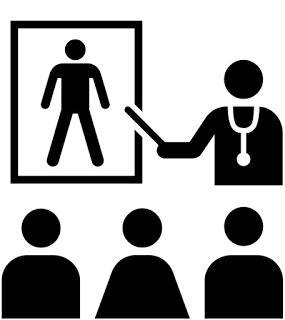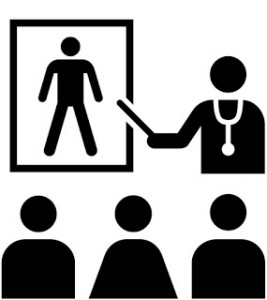Six Pharma Innovations Marketers Should Be Aware Of

 It seems that since the start of this Century, technology has advanced faster than the speed of light. In this fast paced world of technology, healthcare innovations seem to be taking the lead. There is no telling where the next ten years will lead to but one thing is for sure, a lot of change is coming. Businesses and governments around the world are working to bring new healthcare innovations into the world in a quick and efficient manner. These disruptive technological innovations will not only decrease healthcare cost but they will also improve the quality of healthcare delivery. These advancements will have a huge impact on the pharmaceutical world affecting both research and development. As a marketer in the field of pharma, it is essential to be aware of the newest innovations in healthcare and to know how it will impact pharma.
It seems that since the start of this Century, technology has advanced faster than the speed of light. In this fast paced world of technology, healthcare innovations seem to be taking the lead. There is no telling where the next ten years will lead to but one thing is for sure, a lot of change is coming. Businesses and governments around the world are working to bring new healthcare innovations into the world in a quick and efficient manner. These disruptive technological innovations will not only decrease healthcare cost but they will also improve the quality of healthcare delivery. These advancements will have a huge impact on the pharmaceutical world affecting both research and development. As a marketer in the field of pharma, it is essential to be aware of the newest innovations in healthcare and to know how it will impact pharma.
Here are six pharma innovations that marketers should be aware of:
Precision Medicine
Precision medicine is an approach in pharmacy that takes into consideration variables how different factors affect individuals differently. For example, when it comes to treatment of disease or preventative approaches, precision medicine takes into account the genetic make up of an individual, their environment and their lifestyle. Though precision medicine is currently being practiced for blood transfusions, researchers hope to go far with this approach and involve precision medicine in day-to-day healthcare.
mHealth Sensors
mHealth is a generic term that is used for mobile phone related usage in healthcare. Without a doubt, you’ve heard the term “there’s an app for that” several times by now because truly there’s an app for everything these days. Healthcare is certainly not an exception to this rule. Arguably, some of the largest advancements in healthcare have been due to mHealth. Smartphones are now able to track every piece of health information and sharing health data between patients and physicians has never been easier. Thanks to several smartphone apps and Apple’s CareKit, research using real patient data has become unbelievable simple. Of course, this new technology changes the way medical care is delivered and research is conducted. More remote patient monitoring means less visits to the hospital!
3D Printing
3D printing is perhaps the most disruptive piece of technology in healthcare. It seems as though there is nothing that cannot be 3D printed. Not too long ago, an epilepsy drug called Spritam became the first 3D printed FDA approved drug. The Spritam pill was constructed in a complex manner where layers of the drug were added until the correct dose was reached. Currently, a lot of work is being done to 3D print drugs of different shapes that allow for easy swallowing. However, this isn’t the only role that 3D printing plays in the healthcare field. 3D printers are being used to construct prosthetics and other medical equipment as well. There is definitely a promising role that 3D printing will play in the future of medical care.
Artificial Intelligence
Artificial intelligence defines computers with the ability to learn. This is a concept that scientists have been trying to achieve for years. IBM Watson is an example of artificial intelligence that can lead to groundbreaking discoveries in healthcare. Watson has already shown the ability to digest a tremendous amount of scientific literature and knowledge and make new connections that had not been made before. Technology like this is already being used to advance research and will certainly impact the future of medical research.
Nanotechnology
Nanotechnology is the coming together of engineering and science to create microscopic instruments that are between 1 to 100 nanometers large. Nanotechnology plays an important role in healthcare because due to the miniscule size of this technology, nanoparticles can safely travel in the bloodstream. Nanoparticles have the potential to deliver anticancer drugs and to decrease toxicity in the body. This technology can even be used to monitor whether patients have taken their medicine. Researchers are currently looking into creating nano-robots that can perform very specific tasks inside the body.
Virtual Reality
Virtual reality or VR is no longer solely about video games. Healthcare has been using virtual reality for research and healthcare procedures for years but the amount of technology companies transforming research into VR applications practically are scarce. Virtual simulations are being used for medical training, PTSD therapy, patient education, and surgical planning. In the future, we can expect to see virtual reality working with artificial intelligence, big data analytics, and increased computing power.
 Rida Haider is a student specializing in Radiation Therapy and Oncology. She is passionate about digital innovation in healthcare and aims to bridge the gap between healthcare, business, and technology. Follow her on Twitter: @ridahaider_
Rida Haider is a student specializing in Radiation Therapy and Oncology. She is passionate about digital innovation in healthcare and aims to bridge the gap between healthcare, business, and technology. Follow her on Twitter: @ridahaider_
(Originally published on September 29, 2016)